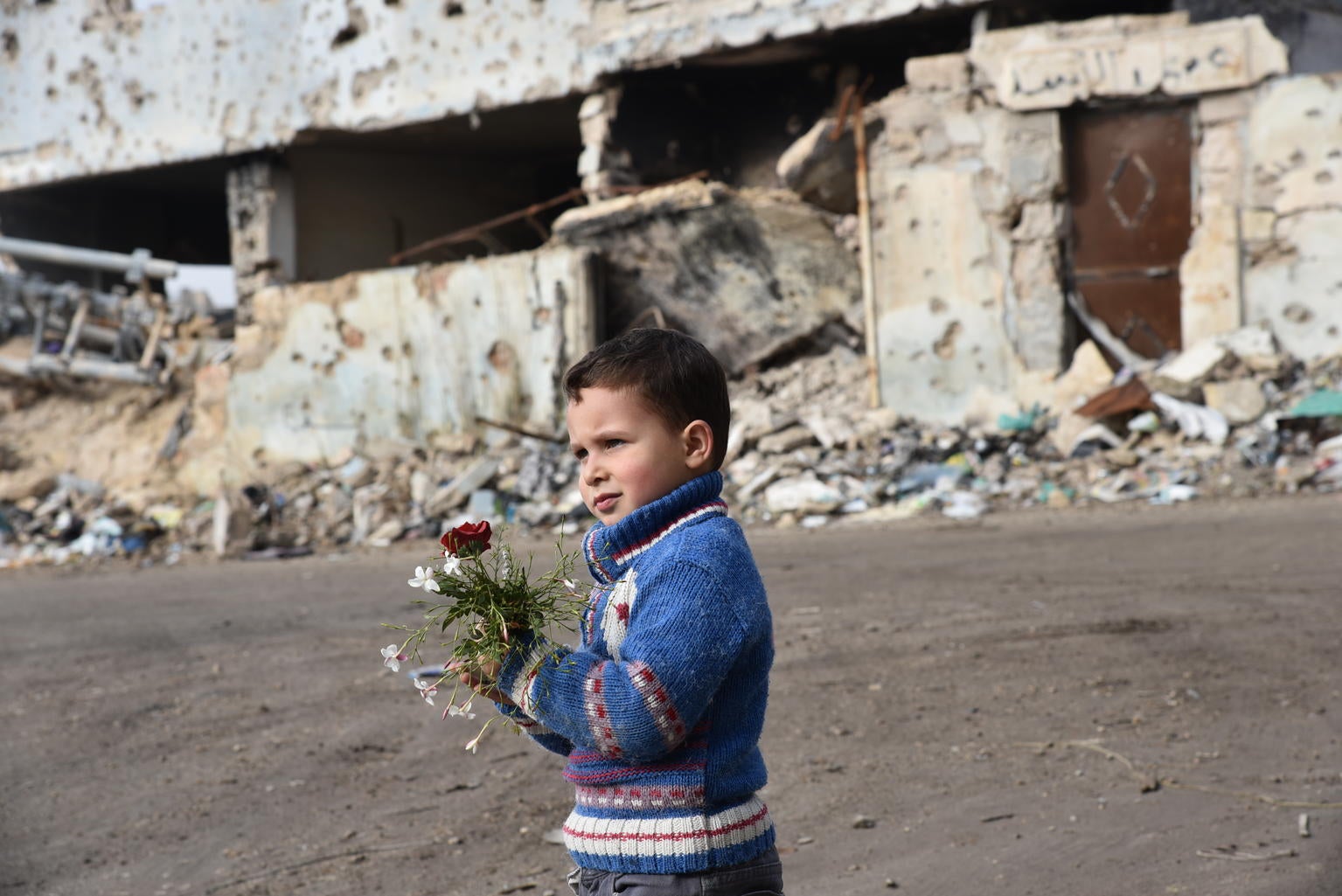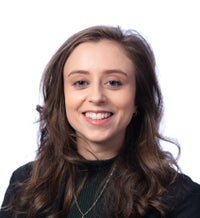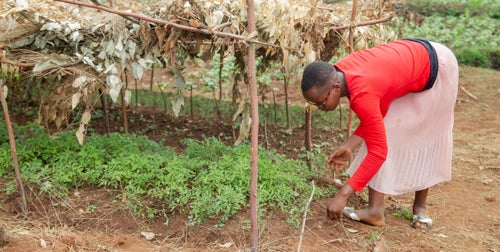A decade. That’s how long war has been raging in Syria. The conflict, which first broke out on 15 March 2011, has caused the largest humanitarian and refugee crisis of our time.
Today, 2.6 million children are displaced inside Syria and millions more have fled to neighbouring countries including Lebanon, Jordan, Iraq, Turkey and beyond.
Children, and their families, have lost their homes, their security, their childhoods, but they have not lost hope. Our teams have been on the ground in Syria and across the region since the beginning of the war, working day and night to protect children and deliver life-saving supplies.
Through it all we’ve kept children safe, healthy and learning. Here are 10 stories from 10 brave and resilient children.
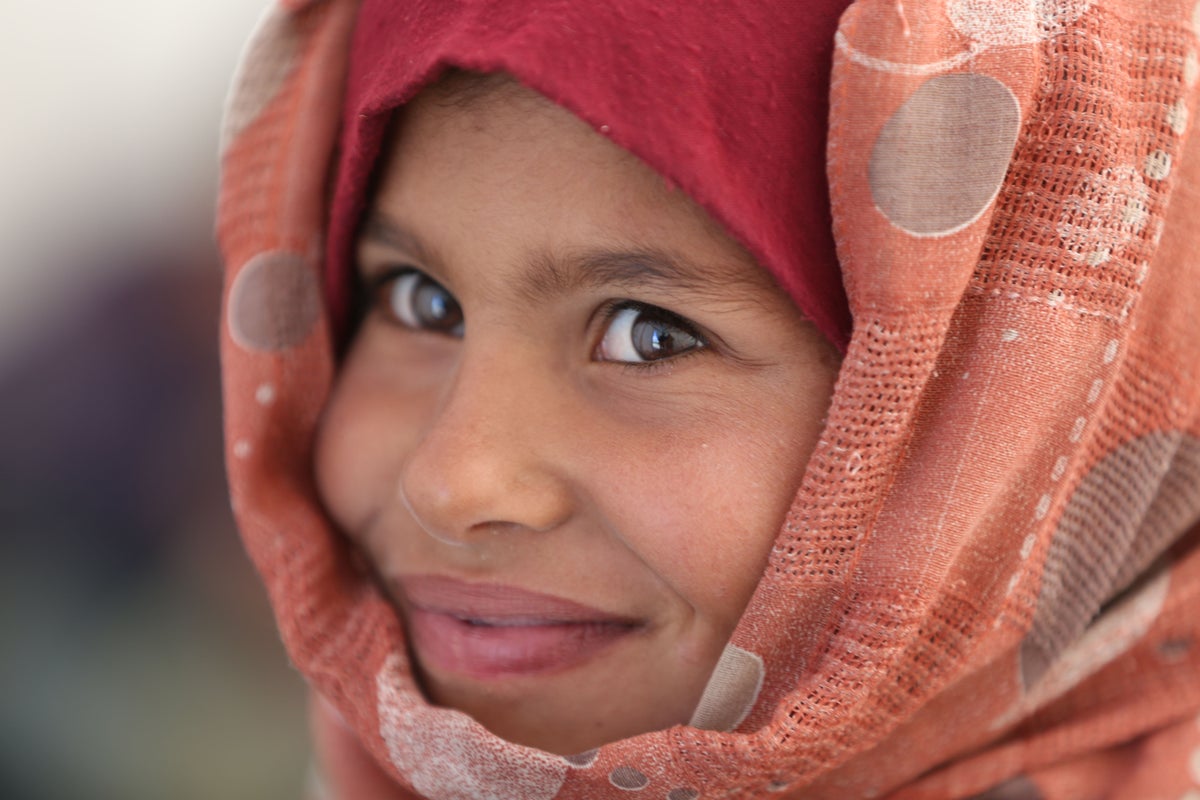
Ni’mat, nine, Syria
“This is the first time for me in a school,” says Ni’mat, living in a makeshift camp in rural Damascus after being displaced three times with her family.
“Before coming here we used to spend all our time at home helping my mother and filling water from the well. We also used to make bread and help my mom cooking on wood inside the tent.”
For children living through the conflict, being in school studying or playing is a privilege many cannot afford. Inside Syria, a shocking 2.4 million children are out of school.
Until early 2017, Ni’mat and around 100 other children at the camp were some of these children. In response, a group of local volunteers set up a tent for around 30 children of different age groups to receive basic education.
In 2020 alone, we reached more than 2.1 million children in Syria with education and school supplies. The chance to learn provide a ray of hope amidst displacement and insecurity.
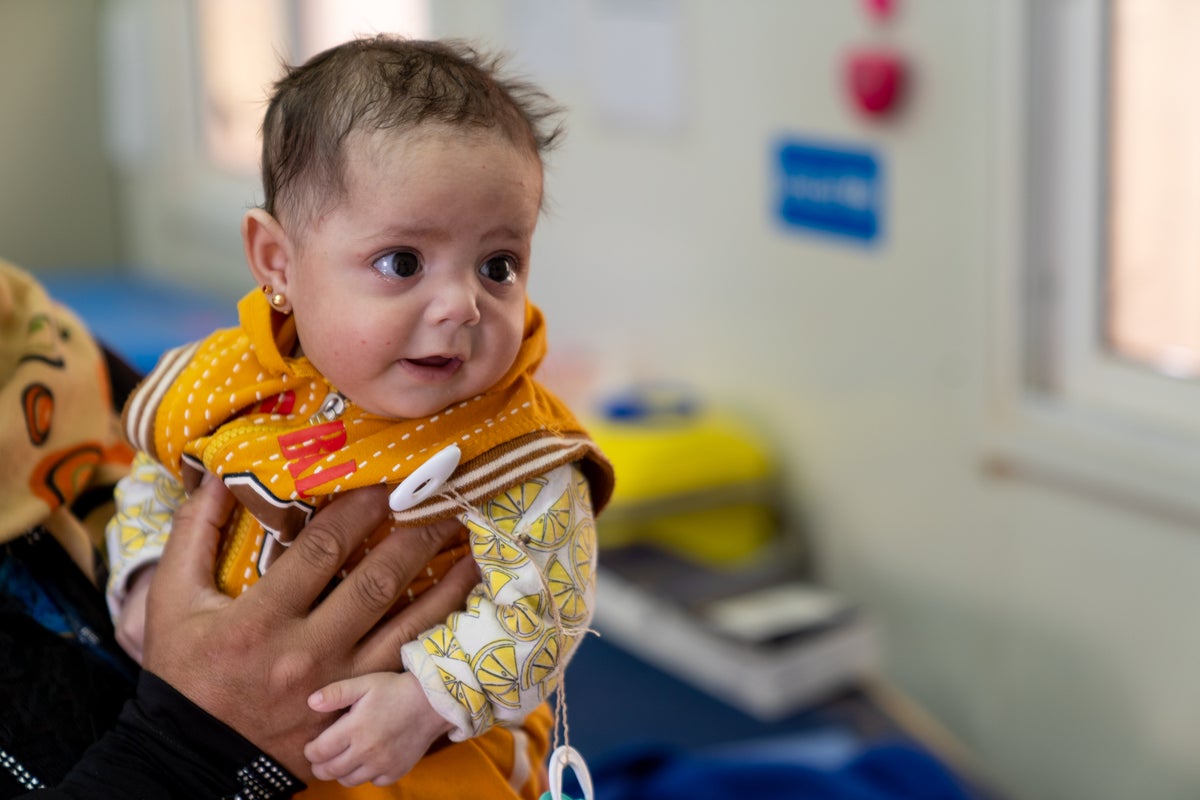
Kholud, three-months-old, Jordan
Little Kholud was born in a refugee camp. Her family fled from Homs, Syria and have been living in Jordan for four years.
"I hope for her to have all the good things in life and an education."
Today Kholud is receiving her vaccinations at a UNICEF-supported health clinic. "The vaccines protect her from sickness and disease,” says her mother Suad. “I hope for her to have all the good things in life and an education.”
In crowded camps, disease can spread quickly and easily. Children like Kholud in their earliest years are the most vulnerable. To keep children safe and healthy, UNICEF supports the Ministry of Health to provide immunisation services and empowers parents to protect their children with vaccines.
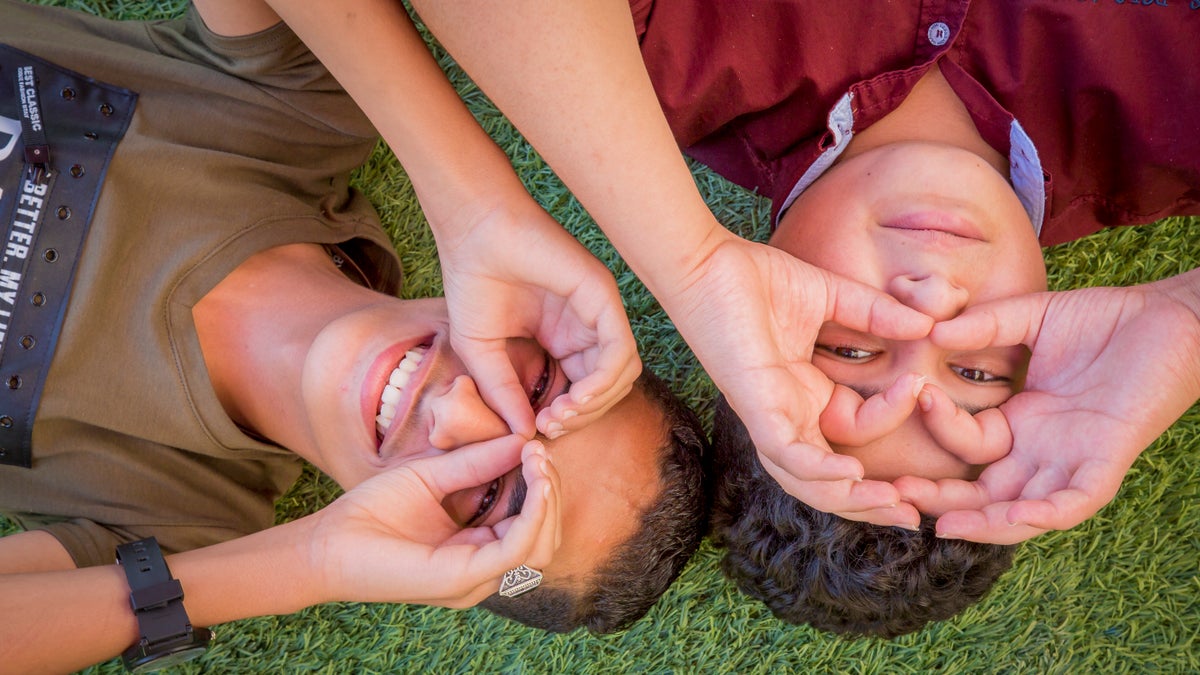
Ayham and Omar, both 14, Jordan
“I met Omar here a few weeks ago and since then we have become best friends. The minute I arrive to the centre, I start looking for him,” says Ayham.
Ayham is Jordanian and Omar is Syrian. The two friends met at ‘Makani’ (My Space in Arabic) a UNICEF-supported centre which provides a safe space for children to learn and make new friends.
Children and young people can access learning opportunities, child protection and other critical services. Close to 150,000 children are registered in 235 Makani centres in Jordan – both in camps and host communities. More than half of children are Syrian.
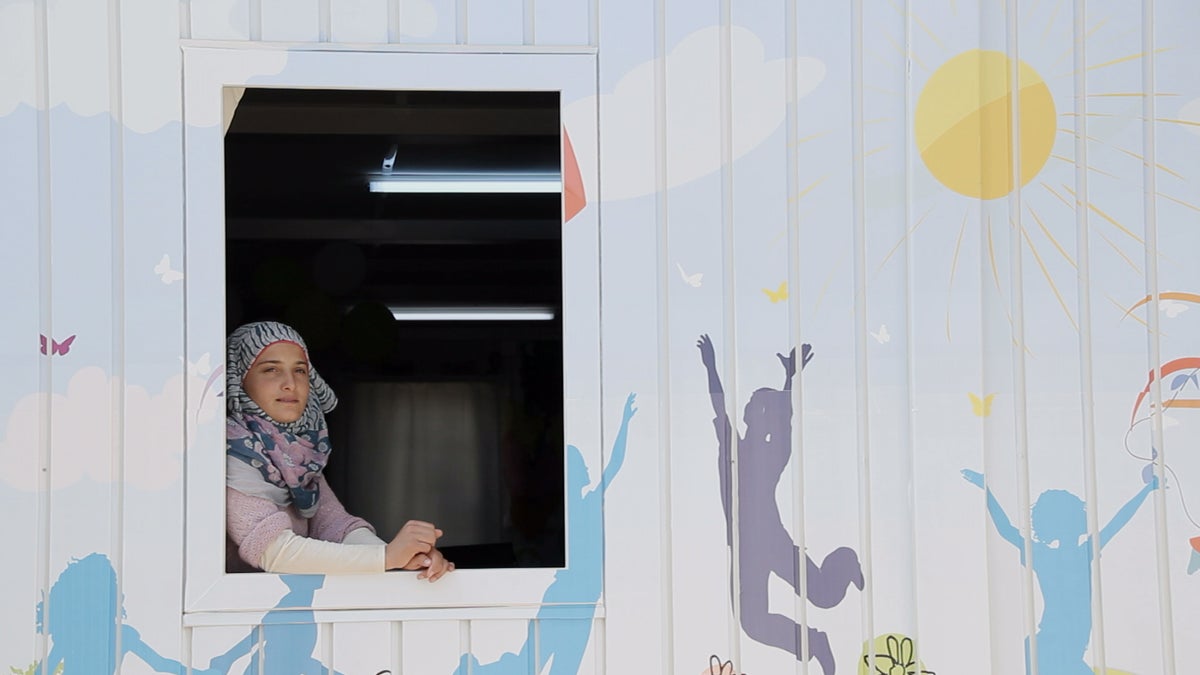
Halime, 14, Turkey
“Before going to the child-friendly space, I felt like I was in prison. I stayed all the time in our tent. But now there is a place where I can play as I wish,” says Halime.
"I only feel free in the child-friendly space."
Imagine leaving everything you know behind – your homes, friends and school. This is the reality for families forced to flee to neighbouring Lebanon, Turkey, Jordan and beyond. But children are determined to keep learning. UNICEF child-friendly spaces provide a safe space for children and youth to learn, play and recover.
“We are so lucky to have this here,” says Halime. “I only feel free in the child-friendly space.”
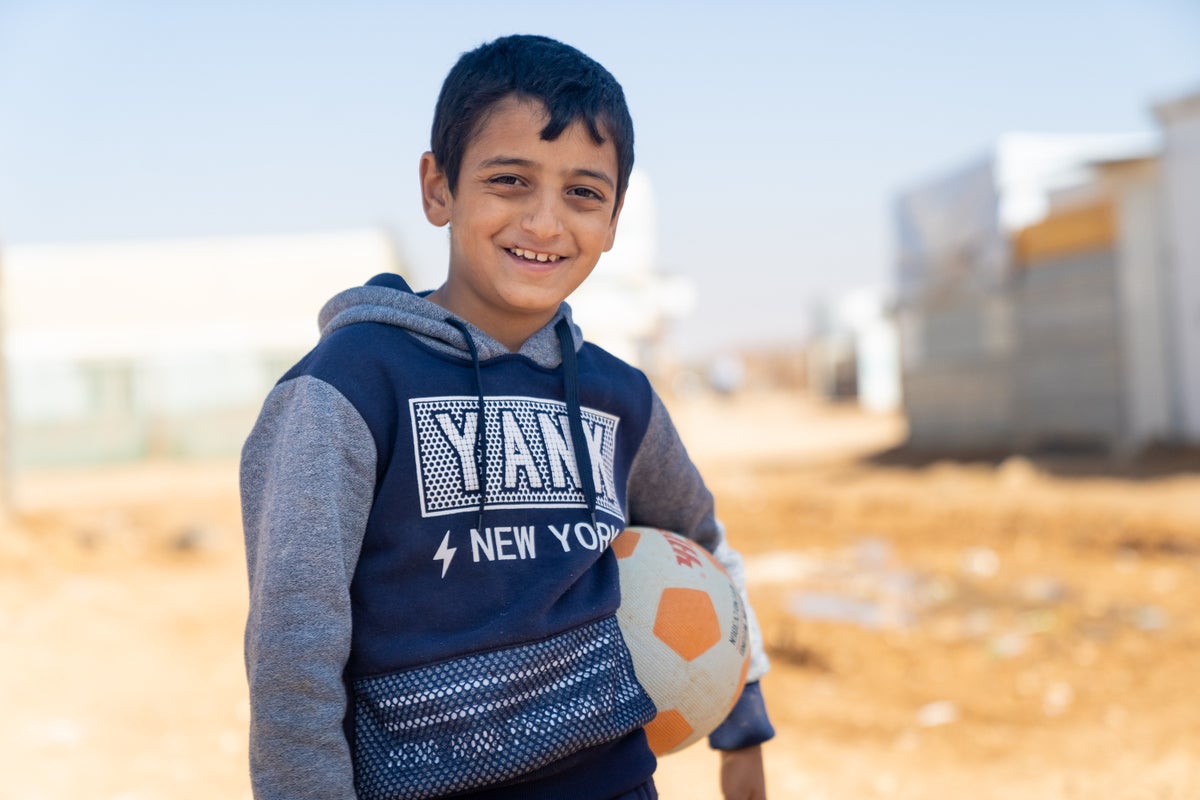
Diaa, 10, Jordan
“Now I go and play football, which is much better than collecting water," says Diaa.
Diaa has lived in Za’atari refugee camp – the largest Syrian refugee camp in the world – with his grandmother since he was four years old. Since the family arrived in 2012, there has been dramatic improvements to the water and sanitation situation.
Before the new water network, Diaa was responsible for collecting water from the communal tap stands. “We had jerrycans and buckets and would go fill them up. It would take us an hour to bring the water all the way home,” says Diaa.
Today, three million litres of water flows through the new UNICEF-supported water network each day. It provides safe drinking water and sanitation to nearly 80,000 people, including 45,000 children.
Now mothers can open a tap to fill a kettle and children are playing football in safe streets instead of waiting for water. “But now we have no worries. We sit and the water comes to us on its own!” says Diaa.
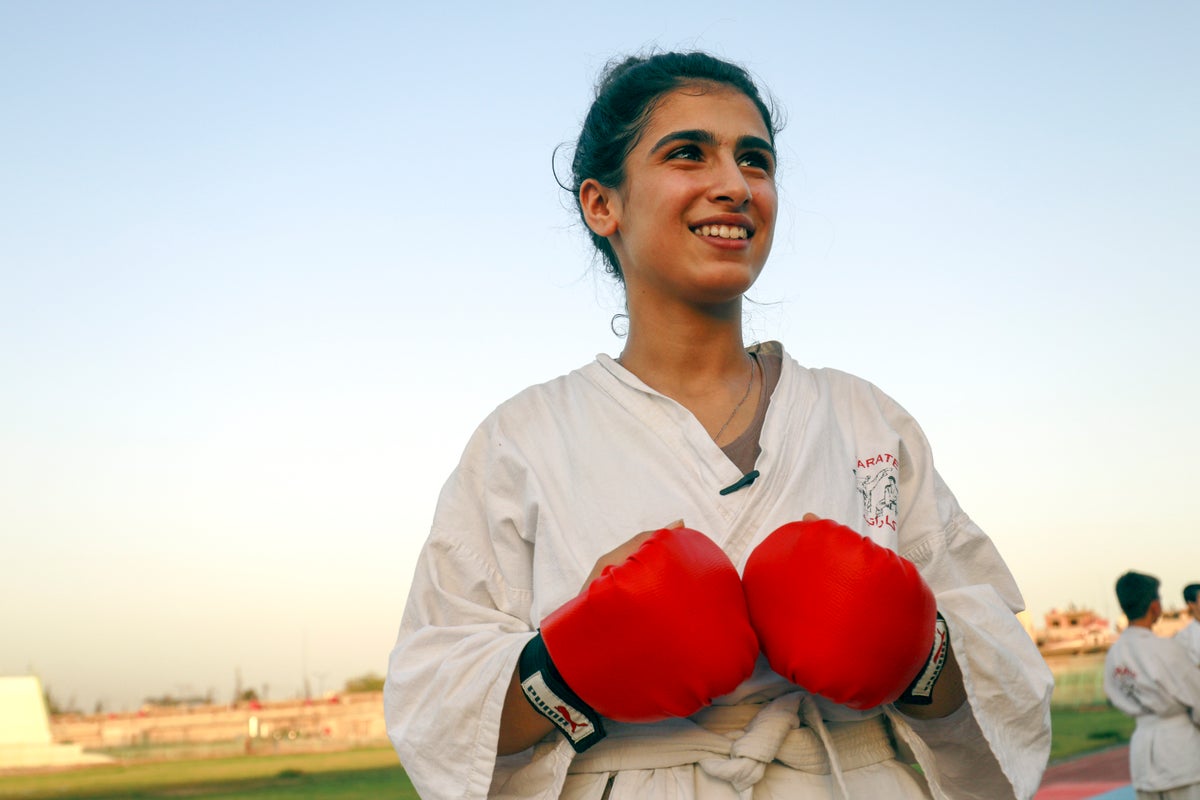
Najbeer, 14, Syria
Najbeer has spent half her life in conflict. But this karate kid is turning her dreams into reality.
“We must work hard to quickly achieve our goals because we don’t know what tomorrow holds,” says Najbeer. She devotes at least three hours every day for her karate training sessions despite the many hardships she has experienced because of the Syrian war.
Najbeer hopes to become a karate coach for girls and women to empower them to break gender stereotypes. UNICEF supports young people like Najbeer through sports for development activities that help young people to reach their full potential by building their skills and capacity to cope with the difficulties they face.
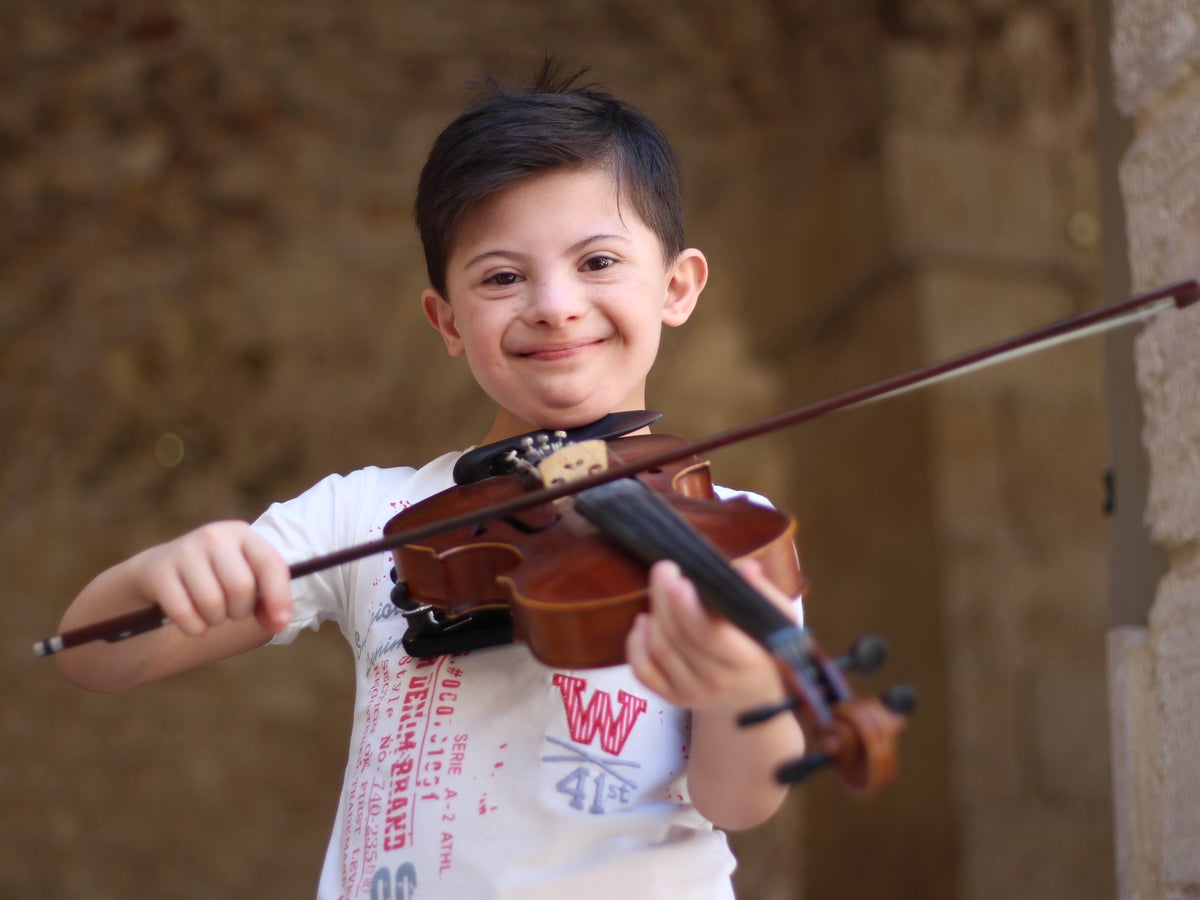
Somar, eight, Syria
Born just before the Syrian war, life has been difficult for Somar, who also has Down’s Syndrome.
“I lost my husband in the fighting,” says his mother, Hind. “We were then forced to flee our home, and the financial burdens kept growing but I kept trying to fill the gap that their father’s death had created and give Somar and his sister, Rawad, a normal life.”
Despite the hardships, Somar dreams of being a violinist. Hind uses the monthly cash assistance she receives from UNICEF to sign him up to swimming and violin lessons, to help him express himself and develop his talents.
“He’s a happy child now, despite everything he’s been through,” says Hind.
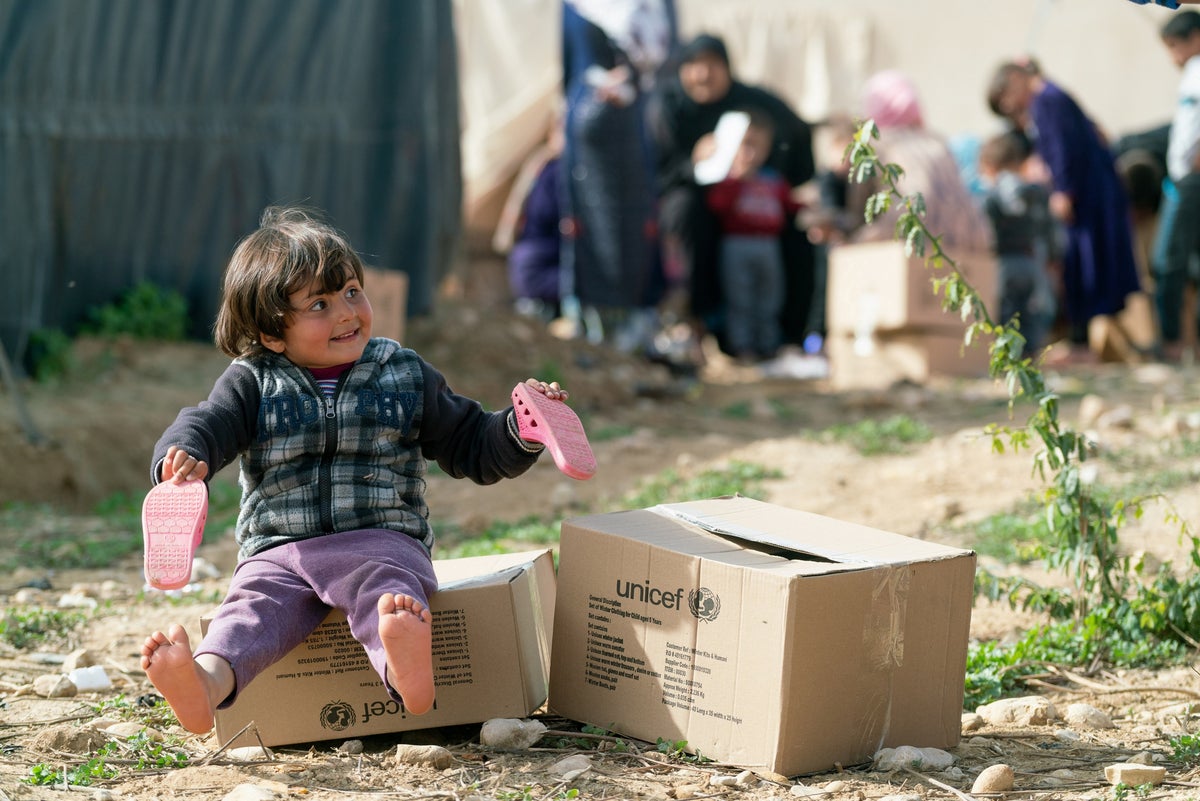
Mariam, four, Jordan
Syrian families have now faced multiple freezing winters displaced from home and often with little but a flimsy tent to protect them against storms, snow and flooding.
Each year, UNICEF distributes warm winter clothing kits to Syrian refugee children to protect against the cold, while cash assistance provides a safety net for families who are struggling on a daily basis to survive.
Mariam lives in an informal tented settlement in Jordan and is happy with her new jumper, pants, hat and boots. “I like the new clothes. They’re warm,” says Mariam.
“This assistance is psychologically more important to us than the physical items themselves,” says Mariam’s father Zaid. “The fact that people are thinking about us, that people care about us – it means everything.”
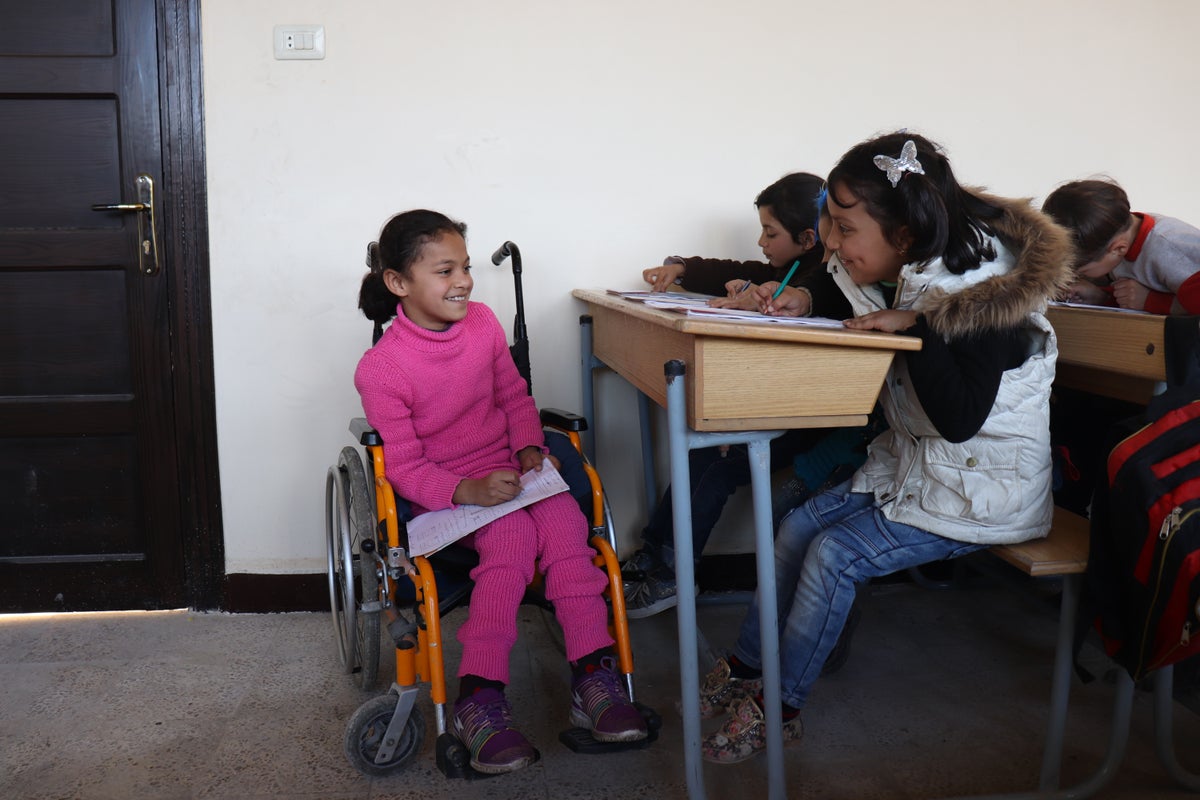
Hanaa, eight, Syria
“I was scared to go outside, I feared that people would point at me and ridicule me because I could not walk,” says Hanaa. Hanaa became a paraplegic when an exploding bomb severed her spinal cord. For months after her injury, she refused to leave her room, play with her siblings or even speak.
Thanks to some persistent volunteers from the local UNICEF child-friendly space, Hanaa was eventually coaxed outside and now she enjoys participating in activities with other children.
After a few months of attending the centre, Hanaa showed great improvement. With the encouragement of her family and UNICEF-supported social workers, she has started Grade 1.
“My dream is to become a physiotherapist to help children like me. And my big dream is for peace to return to my country.”
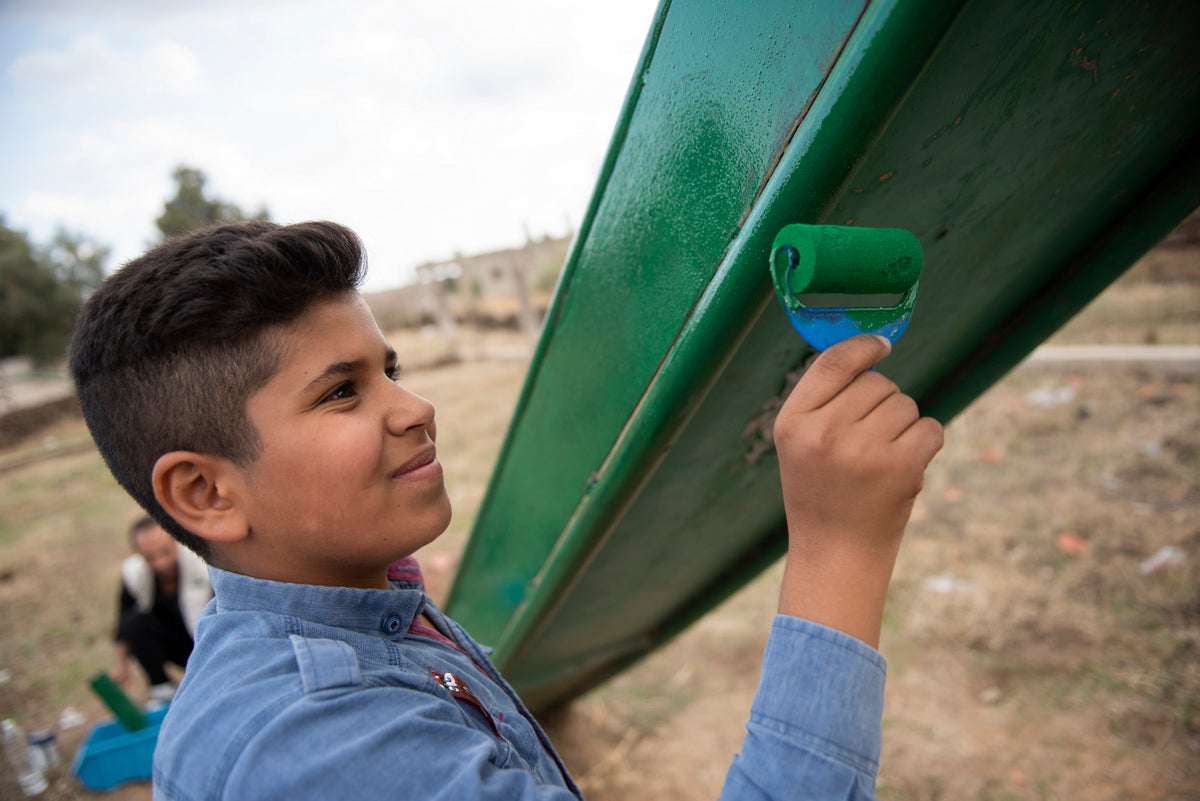
Laith, 12, Syria
“I’m looking forward to the moment when we finish rehabilitating this park,” says Laith, 12. “I picture myself swinging high and playing here with my friends every day after school.”
Ten years into the conflict, Laith and his friends have been deprived of a safe space to play. The only park in their area was damaged, looted and potentially contaminated with unexploded remnants of war.
“For years, we have had to play in the streets or in unsafe areas,” says Laith.
After attending a UNICEF child-friendly space, Laith and his friends decided to take matters into their own hands. At the centre, children are encouraged to form clubs and committees. This time, the children decided to rehabilitate this public park.
With Laith leading the charge and working with the local council and community, the park was cleaned, its swings and slides repaired, and new seedlings planted.
Related articles
Stay up-to-date on UNICEF's work in Australia and around the world



